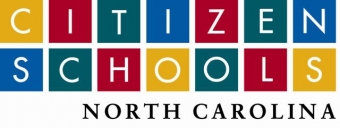- Education Topics
- Achievement Gap
- Alternative Education
- American Education Awards
- Assessment & Evaluation
- Education during COVID-19
- Education Economics
- Education Environment
- Education in the United States during COVID-19
- Education Issues
- Education Policy
- Education Psychology
- Education Scandals and Controversies
- Education Reform
- Education Theory
- Education Worldwide
- Educational Leadership
- Educational Philosophy
- Educational Research
- Educational Technology
- Federal Education Legislation
- Higher Education Worldwide
- Homeless Education
- Homeschooling in the United States
- Migrant Education
- Neglected/Deliquent Students
- Pedagogy
- Sociology of Education
- Special Needs
- National Directories
- After School Programs
- Alternative Schools
- The Arts
- At-Risk Students
- Camps
- Camp Services
- Colleges & Universities
- Counties
- Driving Schools
- Educational Businesses
- Financial Aid
- Higher Education
- International Programs
- Jewish Community Centers
- K-12 Schools
- Language Studies
- Libraries
- Organizations
- Preschools
- Professional Development
- Prom Services
- School Assemblies
- School Districts
- School Field Trips
- School Health
- School Supplies
- School Travel
- School Vendors
- Schools Worldwide
- Special Education
- Special Needs
- Study Abroad
- Teaching Abroad
- Volunteer Programs
- Youth Sports
- For Schools
- Academic Standards
- Assembly Programs
- Blue Ribbon Schools Program
- Educational Accreditation
- Educational Television Channels
- Education in the United States
- History of Education in the United States
- Reading Education in the U.S.
- School Grades
- School Meal Programs
- School Types
- School Uniforms
- Special Education in the United States
- Systems of Formal Education
- U.S. Education Legislation
- For Teachers
- Academic Dishonesty
- Childcare State Licensing Requirements
- Classroom Management
- Education Subjects
- Educational Practices
- Interdisciplinary Teaching
- Job and Interview Tips
- Lesson Plans | Grades
- Professional Development
- State Curriculum Standards
- Substitute Teaching
- Teacher Salary
- Teacher Training Programs
- Teaching Methods
- Training and Certification
- For Students
- Academic Competitions
- Admissions Testing
- At-Risk Students
- Career Planning
- College Admissions
- Drivers License
- Educational Programs
- Educational Television
- High School Dropouts
- Higher Education
- School Health
- Senior Proms
- Sex Education
- Standardized Testing
- Student Financial Aid
- Student Television Stations
- Summer Learning Loss
Citizen Schools North Carolina

Basic Information
Address: 5624 Executive Center Drive, Suite 105
Charlotte, NC 28212
Phone Number: 704-332-3645
Director: Cassie McIntyre, Manager of Civic Engagement
Additional Information
Causes Served: Education
Background Check: Yes
Population Served: middle school youth
Ages for Volunteer: 18+
Hours of Service: 2 hrs per week for ten weeks (4:15-5:45pm)
Minimum Hours Required: 30+ (including training and prep time)
Days of Service: Tuesdays or Thursdays
Mission Statement:
Citizen Schools is a leading national education initiative that uniquely mobilizes thousands of adult volunteers to help improve student achievement by teaching skill-building apprenticeships after-school. Our programs blend these real-world learning projects with rigorous academic and leadership development activities, preparing students in the middle grades for success in high school, college, the workforce, and civic life.
Additional Information:
Apprenticeships at Citizen Schools give adults the opportunity to take what they do best in their professional careers or personal pursuits and use it to help middle-school students move to a long-term trajectory of success.
Volunteer Citizen Teachers enable young people to learn real-world skills by creating real-world projects. Lawyers turn their apprentices into prosecutors, artists cultivate young muralists, gardeners lead a team of twelve-year-old green thumbs.
"WOW!" is what people usually say when they encounter the results of the apprentices' work. So that is what we call the final product, presentation or performance at the end of each apprenticeship. Every WOW! showcases the students' learning for a public audience of family, school staff, and community leaders. Past WOW!s include a video on lead contamination, a prize-winning solar car, an arts festival, a naval warship design, a CD of local music, even a financial plan for a new business--all created by young people themselves.
The Citizen Teacher experience is richly rewarding--and hassle-free. The whole experience spans 13 weeks and between 30 and 40 hours.
Here is what it includes:
-Extensive training with Citizen Schools staff
-An on-site orientation and Apprenticeship Fair in the first week
-10 afternoons of instruction with apprentices culminating in a WOW!
-A final session for apprentices and Citizen Teachers to reflect on their journey


